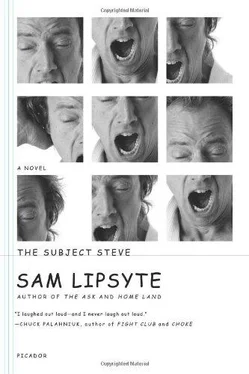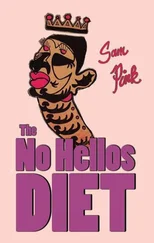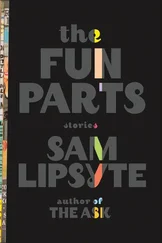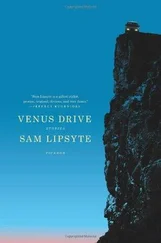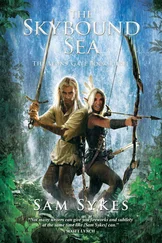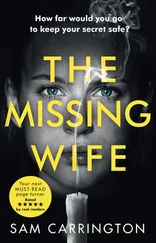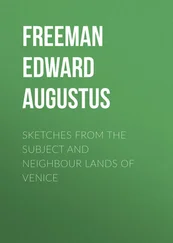"Yes, Professor."
"Well, it wasn't so broken you weren't able to mow some rocks with it, now was it?"
"I told you, I didn't mow no goddamn fucking rocks!"
"Don't you dare swear in my shed."
"This was Walt Wilmer's shed before you even moved here. I helped him build the fucking thing."
"It's my shed now."
"Walt Wilmer."
"Nuts to Walt Wilmer."
"Walt Wilmer was a good man. He died protecting this community."
"He was a drunken traffic cop. His wife ran him over."
"He was protecting this community."
"I don't know what that means."
"Sure you do, Jewboy."
"You just stepped over the fucking line, Cudahy."
"Hey, don't swear in the shed, kike!"
It didn't sound like a fight. It sounded like an accident, or some vaudeville routine. I pictured our fathers in checkered suits, pratfalling in tandem, dumb grins footlight-lit.
"Hey, Jimbo, what do you know, is this a hole in the road?"
"Don't see no hole, Charlie, I think it's just fresh paiiiiiint. ."
Then it sounded like something else was in there with them, something maybe fanged and rabid fettered to the toolshed floor. We heard banging, bashing, what must have been the rake barrel spinning, all those wingnuts and washers and quarter-inch screws spilled out like some dragon hoard of home improvement, all those thingamabobs sliding, wheeling, rolling into thingamajigs, flipping them, flying them, and underneath it now a new noise, a slow, pressured thrashing, as though our fathers were vying for great gruesome grips on the floor, for spine-snapping holds, full and infernal Nelsons, each man sliding, straining, torquing for purchase, for a death blow, even, but it never came. There was only a thud and then another thud, hard breathing, moans.
Cudahy cupped his hands under the window and I slipped in my Ked for a hoist. I caught sight of them before his fingers-not yet the cannonball shovers they would someday become-gave way. Our fathers were shored up together against the wall planks, eyes shut, shirts torn, knuckles torn, blood riding eddies of sweat down their cheeks. They looked like a famous photograph of war, some newsweekly pin-up of noble woe. They rubbed their arms, tested their necks, bit down on pulped lips.
"Who won?" whispered Cudahy.
Cudahy hadn't seen what I'd seen. For him it was still my-father-can-beat-up-your-father, understandable, really, part of the protocol, in fact, but my vision of them there together in that ruined place-everything upturned, upended, all order murdered, the floor studded with oddments, the rakes and spades and hoes heaped like some peasant rebellion's surrender-had changed everything. These were new men now.
We'd have to be new boys.
"Nobody won," I said.
"What do you mean nobody won?"
"Shh," I said.
We heard them through the shed wood.
"Jesus, Jim," said my father. "I'm sorry."
"Didn't know you had it in you, Charlie."
"Jesus, Jim."
"Haven't banged around like that in a while."
"My first fight."
"No shit? You did good, Charlie. You're a maniac."
"I thought I was a pacifist. Against the war, you know."
"Hell, the war was bullshit."
"We're all animals, Jim."
"Take it easy, buddy. You weren't that good. I could have kicked your ass if it came down to it. Still might."
"You're a big man, Jim. Big Jim."
"Big Jim Cudahy. Big everywhere. Big where it counts."
"Sure you are."
"No shit. Ask your wife."
"I did."
"Fuck."
"It's all right, Jim."
"Shit. What'd she say. Oh, fuck."
"Forget about it, Jim."
"Just like that?"
"Just like that."
"You're a better man than I am, Charlie."
"Clearly I'm not. So, let's see it."
"What?"
"Let's see it."
"Whoa, there, buddy."
"No, really, let's see Big Jim's big 'un."
"Now I'm really going to have to beat the crap out of you."
"Want to see mine?"
"What the hell?"
"No, really."
"Really?"
"Really."
"You, too, then."
"Me, too, then."
"You won't be sorry."
"I'm always sorry."
We listened for a while, a shuffle of boots, buttons unsnapping. We listened and heard nothing. Then we heard something. It didn't mean anything, really. It was a couple of men finding some kind of solace in darkness, I guess. It was a couple of men with nothing in common but four hands and two cocks between them.
I looked over at Cudahy.
We'd have to be better friends than we'd ever been or no friends at all.
"Somebody won," said Cudahy.
"No," I said, "it was a draw."
Now I walked the cemetery grounds, poked around for Cudahy's stone. Near some weeds I spotted a granite sarcophagus that said Kippelman. I laid some nylon roses on it. Cudahy had been a great believer in fake flowers, fake teeth, fake fur.
"Everything God makes rots," he'd said.
I laid a card down beside the roses.
"Kippelman," I wrote. "Please hold for Cudahy."
I drove west, took a room in the hills, the Landview Inn Motel.
"We used to be an inn, in the olden days," said the woman who'd risen from a plate of sauerkraut when I'd tapped the bell. "We're a motel now, but we enjoy the historical significance of our past. Aaron Burr bedded a lady here. How long are you staying?"
"I don't know."
"That's not a problem."
"I'll have a better answer tomorrow."
"Tomorrow's the big day, huh?"
"What do you mean?"
"Tomorrow the cows come home."
"I don't follow."
"I didn't ask you to follow," said the woman. "I'm sorry. I don't know what's wrong with me. I guess I'm not in a welcoming mood. I'm pooped. People think motel people just sit on their butts and pass out keys. There's a lot more to it."
"I don't doubt it."
"That's kind of you not to doubt it," the woman said, looked at my credit card. "William."
"Bill."
"I'm Fran. Fran Kincaid."
"You're kidding."
"It's not a very funny name, Bill, why would I be kidding? I mean Fran's sort of funny, like Gertrude, or something. I'll grant you that. But Kincaid? I like the sound of Kincaid. Hearty, right? I knew a guy named Murray Murray. Now that's funny. Jewish fellow. Not that I care. Happened to be Hebrew. We kissed, that's all. Not because of the Jew thing. I'm attracted to Jews. Einstein stayed here with his mistress in the fifties. Not that he was attractive. But you figure a guy who knows how the universe works would probably have a knack for smaller-scale manipulations, too, if you get my meaning. I'm sure you get my meaning. You seem like a worldly man of the world, William."
"Bill."
"I like William better. Do you mind if I call you William? It sounds more historical."
"Tell me, Fran, have you worked here long?"
"All my life. Or, well, a while. A few years."
"I once knew a Fran Kincaid. We were pen pals."
"Were you in prison?"
"No."
"Because a lot of gals write to cons. It's good to know where your man is every night. Oh, wait, I've heard of this. She was in prison."
"Nobody was in prison."
"Well, William, I never wrote you when you were in the slam. Seeing you now, I'm kind of sorry I didn't."
"Can I have my key?"
"Here. Don't worry, I've got a set, too."
I picked up a pint of rye at a package store across the interstate. My hunt for a complimentary Landview Inn Motel water glass proved futile and I had to make do with Dixie cups. This wasn't a bad thing, though I find it pretty hard to drink from a Dixie cup without tasting toothpaste. Someday there will be surgical remedy for this sort of thing. I called directory assistance and asked for my father's telephone number.
"Does your father have a name?"
"Oh, right," I said.
The old man let it ring for a while.
Читать дальше
